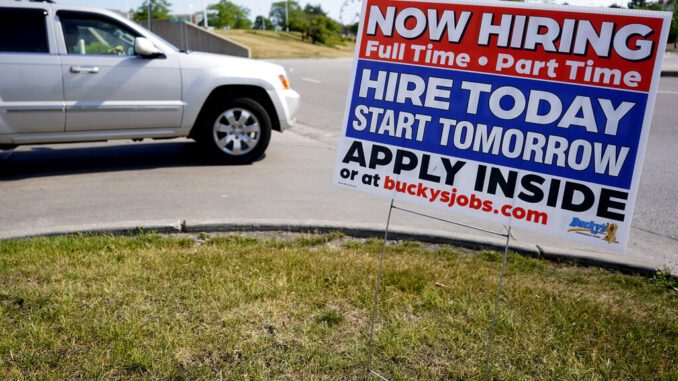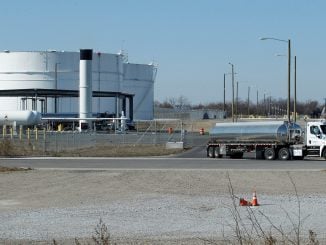
WASHINGTON, D.C. — America’s employers added just 235,000 jobs in August, a surprisingly weak gain after two months of robust hiring and the clearest sign to date that the delta variant’s spread has discouraged some people from flying, shopping and eating out.
The August job growth the government reported Friday fell far short of the sizable gains of roughly 1 million in each of the previous two months. The hiring jumps in June and July had followed widespread vaccinations that allowed the economy to fully reopen from pandemic restrictions. Now, with Americans buying fewer plane tickets, reducing hotel stays and filling fewer entertainment venues, some employers in those areas have slowed their hiring.
Still, the number of job openings remains at record levels, with many businesses eager for workers, and hiring is likely to rebound in the coming months. Even last month’s modest job growth was sufficient to lower the unemployment rate to 5.2% from 5.4% in July. With consumers willing to spend and companies trying to hire, the U.S. economy looks healthy.
The details of Friday’s jobs report showed how the delta variant held back job growth last month. The sectors of the economy where hiring was weakest — restaurants, hotels and retailers — were mainly those that require face-to-face contact with the public. More Americans said they were unable to work in August because their employer closed or lost business to the pandemic than said so in July.
Hiring in the category that includes restaurants, bars and hotels sank to zero in August after those sectors had added roughly 400,000 jobs in both June and July. Restaurant dining, after having fully recovered in late June, has declined to about 9% below pre-pandemic levels, according to reservations website OpenTable.
Some live shows, including the remaining concerts on country star Garth Brooks’ tour, have been canceled. Businesses are delaying their returns to offices, threatening the survival of some downtown restaurants, coffee shops and dry cleaners.
“The delta variant has taken a bigger toll on the job market than many of us had hoped,” said Sarah House, a senior economist at Wells Fargo. “It’s going to take workers longer to come back to the labor market than we expected.”
As a consequence, many economists now predict that the Federal Reserve won’t make a long-awaited announcement that it will begin dialing back its low-interest rate policies until November or later.
The August jobs report “slams the door” on the prospect of the Fed announcing a pullback when it meets later this month, House said. Fed Chair Jerome Powell made clear last week that the central bank would begin to reverse its ultra-low-rate policies later this year if the economy continued to improve.
A lack of available workers remains a major hurdle to robust hiring. A few months ago, many economists had expected a fading pandemic to encourage more people to resume their job searches. Worries about getting sick on the job would fade, they hoped. And as schools reopened, more parents, particularly women, would return to the workforce.
So far, that hasn’t happened. But the demand for workers remains strong. The job listings website Indeed says the number of available jobs grew in August. And the National Federation for Independent Business said its surveys show that half of small businesses have jobs they cannot fill.
Across the economy, that difficulty is compelling employers to offer higher pay. Average hourly wages rose a robust 4.3% in August compared with a year earlier.
Walmart announced this week that it will hire 20,000 people to expand its supply chain and online shopping operations, including jobs for order fillers, drivers, and managers. Amazon said Wednesday that it is looking to fill 40,000 jobs in the U.S., mostly technology and hourly positions.
And Fidelity Investments said Tuesday that it is adding 9,000 more jobs, including in customer service and IT. In such sectors, where face-to-face contact with the public isn’t generally required, hiring remains strong.

